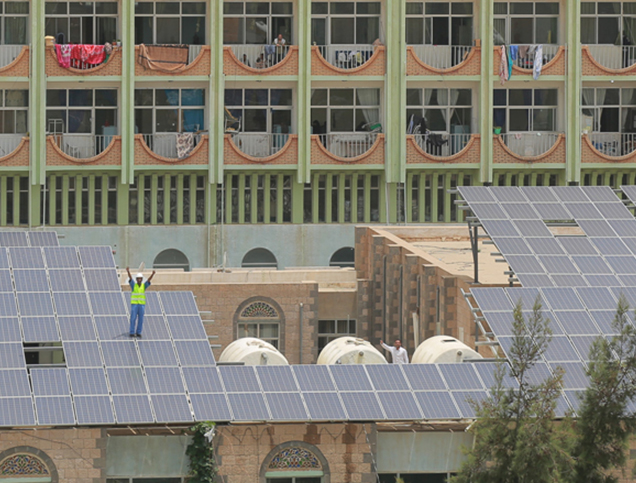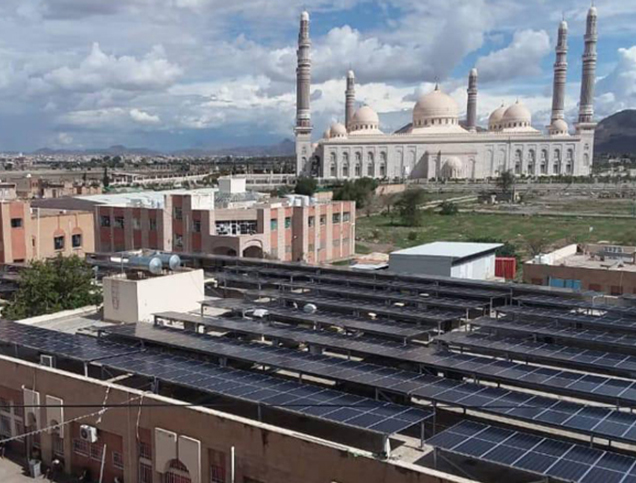
Close

Approach Words: Efficiency, Heritage Preservation, Sustainability
Public Policy Instruments: Financial Mechanism, Physical Intervention
The project for the provision of solar power systems in Yemen aims to provide a reliable and sustainable power source to health facilities in the country1. This project is part of the World Bank’s Yemen Integrated Urban Services Emergency Project (YIUSEP) and is a response to the collapse of urban services after the war in 2014, following which half of the health facilities were left partially, or completely non-functional2.
The World Bank, in partnership with the United Nations Office for Project Services (UNOPS), initiated the installation of solar power systems in 76 health facilities in cities like Aden, Sana’a, and Hodeida, recognizing the presence of abundant sunlight in Yemen3. This is especially relevant amid the outbreak of COVID-19 and other diseases such as cholera, dengue fever, and malaria4. The project also allows hospitals to be used as isolation centers in case of a serious outbreak5. It identifies that 38 facilities have been designated as isolation centers, with 30 directly benefiting from the YIUSEP6.

Title: Solar Panels on Al-Jamhori hospital in Sana’a.
Source: Click Here

Title: Solar Panels on a hospital in Sana’a.
Source: Click Here
The implementation of solar power systems has been transformative for hospitals such as the Al-Jamhouri public hospital in Sana’a, which receives approximately 500 patients per day, and is among the first hospitals to receive a 137-kilowatt off-grid solar PV system7. These solar installations have enabled facilities to operate 24/7. The uninterrupted power supply is crucial for emergency and critical care, child delivery services, and maintaining the cold-chain for vaccines and medicines8.

Owner/Developer

Consultant/Designer

Funder

Contractor/Implementer
This initiative is part of the broader YIUSEP project (2017-2021)9 i. YIUSEP was initiated by the World Bank with a budget of US$150 million, aiming to restore access to critical urban services within selected cities in Yemen10 ii . Implemented by The United Nations Office for Project Services (UNOPS) in collaboration with local partners11, the project’s primary aim is to restore services in key sectors like WASH (water, sanitation, and hygiene), municipal services, urban roads, and energy for critical services12. By March 2021, the project had successfully achieved its targets, rehabilitating access to essential services for over 3 million beneficiaries, creating more than 1.5 million person-days of temporary employment, refurbishing 258 kilometers of roads, and generating 89,000 MWh of energy13. Due to unmet urban infrastructure and service delivery needs in Yemen, exacerbated by ongoing conflict and the 2020 flooding, resulted in the conception of YIUSEP II as a continuation of YIUSEP, focusing on ‘quick-win and small-scale interventions’14 ii.
Project Link
Endnotes
References